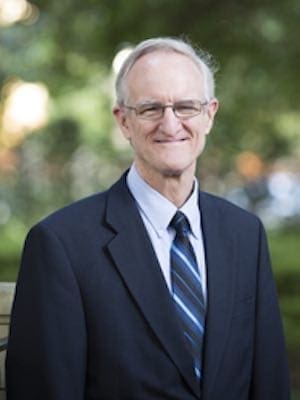At the 1978 Southern Baptist Convention, those present heard a stirring report about world hunger. The speaker asked all in attendance to skip lunch and fast for the cause. Convention president Jimmy Allen then said with a smile from the podium that although many Baptists would probably not forego lunch they would surely take the price of a meal and give to an offering for world hunger. Baptists and fasting: an oxymoron.
Baptists have placed little emphasis on fasting. Confessions of faith rarely mention it. The Second London Confession of 1689 said a pastor should pray and fast (but deacons should just pray). Baptists of England and America in the 18th and 19th centuries occasionally observed fast days and some churches required fasting as part of their church discipline.
Baptists have often resisted fasting because of their reading of Jesus’ critique of hypocritical fasting (Mt 6:16, though ignoring v. 17). More importantly, perhaps, Baptists have avoided fasting due to its association with Catholicism.
Baptists have more commonly used the broader language of self-denial and self-sacrifice. In 1895, the Woman’s Missionary Union answered a request from the Home Mission Board of the SBC to help alleviate the latter’s debt. The women began an annual offering (now the Annie Armstrong Easter Offering) during a Week of Self-Denial for Home Missions. In 1917, the women dropped the phrase “self-denial” because few Baptists practiced it.
Significant interest in fasting has developed among Baptists in recent years. Several types of “fasting Baptists” can be identified:
–Liturgical Baptists. Like other ecumenical Protestants, some Baptists are recovering elements of the Catholic liturgical tradition such as Lent with its 40 days of fasting before Easter.
–“Richard Foster” Baptists. Foster, the Quaker writer on spirituality, has influenced Baptists across the theological spectrum by advocating fasting as a spiritual discipline. His classic work is Celebration of Discipline.
–Calvinistic Baptists. The rise of Calvinism among conservative and fundamentalist Baptists includes a call to serious discipleship that emphasizes fasting.
–Para-Church Baptists. Many Baptist college students practice a generic evangelical “charismatic-lite” Christianity that includes an intense individualistic spirituality (informal emotional worship, hands/no tongues, praise and worship choruses, fasting, language of spiritual warfare). Para-church non-denominational ministries provide outlets for this post-denominational spirituality. Campus Crusade for Christ (Bill Bright began a focus on fasting in 1994) and Passion Conferences (led by calvinist Louie Giglio of Choice Ministries) promote fasting as a more passionate pursuit of God and a key to a coming revival.
Fasting has found a home with many contemporary Baptists focused on personal renewal. The challenge remains to translate an intense individual spirituality into transformed relationships and social justice.
Doug Weaver is professor of Christianity at Brewton-Parker College in Mt. Vernon, Ga.

